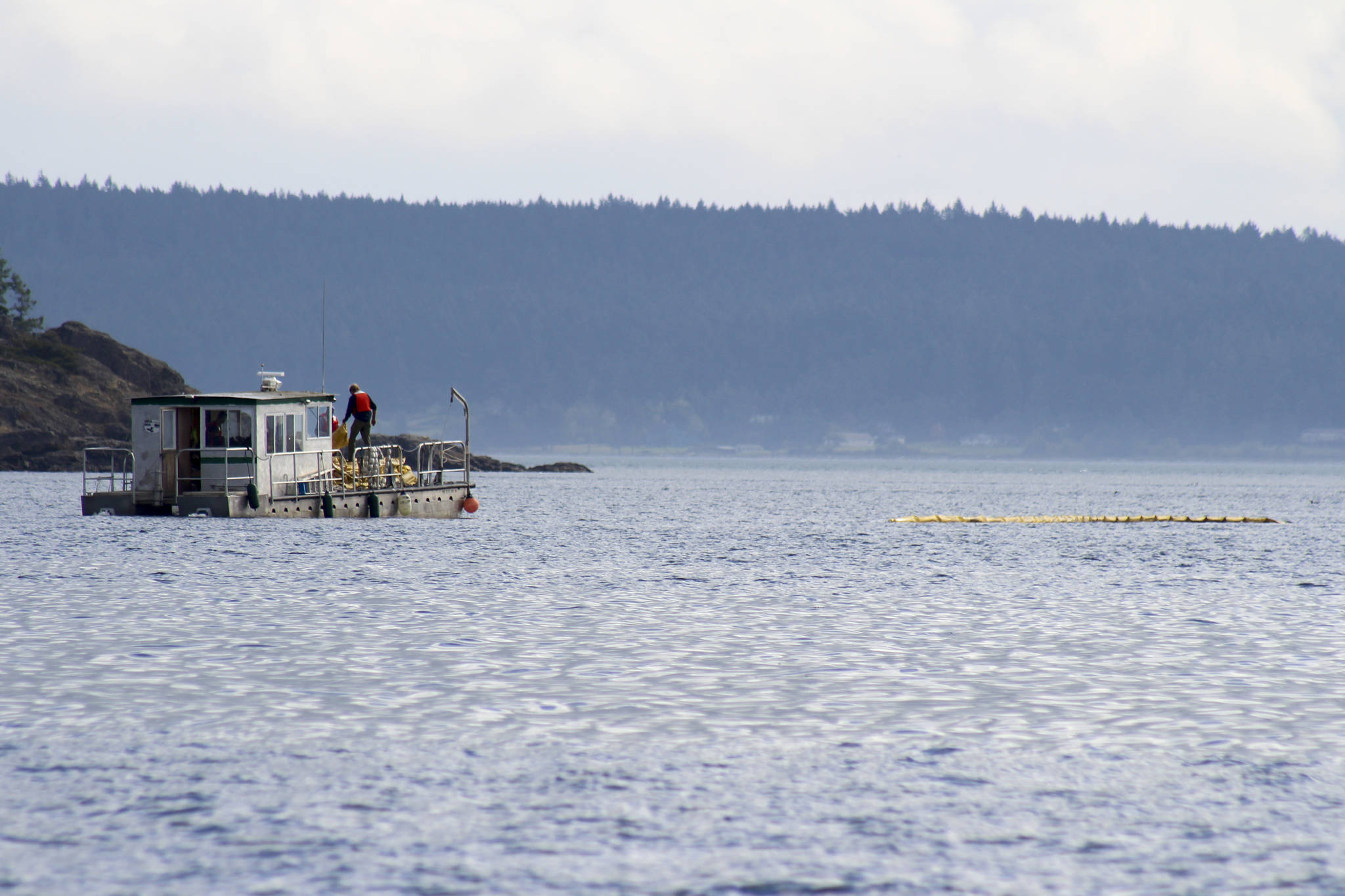Thousands of vessels travel throughout the Salish Sea annually, either to pass through for commercial purposes or putter around for recreation. Each ship, boat and ferry that floats within the waters surrounding the islands brings with it the possibility of an oil spill — some more dangerous than others.
An oil spill in the Salish Sea could mean the extinction of the already endangered Southern resident orcas. Islands’ Oil Spill Association was created in 1988 to help mitigate the effects of a spill on the San Juan Islands.
It’s been almost a year since IOSA ceased operation due to lack of funds, but after being brought back to life in February by community members passionate about oil spill prevention and cleanup, the group is gaining momentum. The organization is a nonprofit oil spill response organization that is community-based and supported in San Juan County. It’s the only oil spill response organization in the islands.
San Juan County Department of Emergency Management Director Brendan Cowan gave the county council an update on the steadily growing organization.
“Everything that’s going on with IOSA, I feel pretty good about. … We still got lots of hurdles to clear until I say yeah we’ve got this thing launched and we’re moving in the right direction,” Cowan said. “But we’re definitely moving there and I feel pretty good about where things are at.”
Cowan explained that since his last quarterly update, the board of directors for IOSA has grown by four people — from six to 10. The new directors are Paul Hamdorff, Connor Keeney, Todd Nicholson and Bill Rinesmith. Keeney and Rinesmith both work for refineries.
“They’ve been longtime supports of IOSA, their organizations have been longtime supporters financially, in training and operationally,” Cowan said. “It’s really nice to have those guys in official capacities on the board and it’s a big step forward toward securing a commitment from the industry as we head into next year.”
Other updates from Cowan included IOSA drafting a memorandum of understanding with the county so that it can receive the funds from a proposed levy lift to be voted on in November; updated bylaws and started updating articles of incorporation, a requirement by the state to receive public funds; and working with Washington Department of Ecology on a geographic response plan update.
San Juan County is proposing a levy lift during the November general election of 22 cents per $1,000 assessed property value. Of the $1,700,000 that the lift would collect, $140,000 is budgeted toward emergency management. Twenty-one other community programs would also benefit from this raise.
At the end of August, IOSA joined local marine and cultural experts to discuss protection of the county’s coastline in the event of a large oil spill, according to a press release from the county. Organizations represented by the experts include the Department of Ecology Marine Spill Response Corporation and U.S. Coast Guard. The agencies will be working together to create processes for the purpose of protecting important natural habitats, sites of cultural importance and places of economic importance from large oil spills — a geographic response plan. There are 70 existing geographic response plans for San Juan County.
After an afternoon workshop and two and a half days of fieldwork, the team was able to survey more than 60 sites where protections are in place and where they should be. Protected areas include Fisherman’s Bay and Watmough Bay on Lopez; Deer Harbor on Orcas; False Bay and Westcott Bay on San Juan; Echo Bay on Sucia; as well as sites off the shore of Blakely and Decatur and on Stewart and Waldron.
“Knowing where to protect is dependent on local knowledge and expertise,” Frances Robertson, San Juan County Marine program coordinator, wrote in the press release. “Working hand in hand with IOSA, MSRC, Ecology and the Coast Guard ensures that the most important coastlines for our forage fish, juvenile salmon and nearshore marine habitats in the county have a chance of being protected.”
Cowan explained that IOSA has also been working on creating a partnership between it and Focus Wildlife, an international oiled wildlife response organization based in Anacortes.
“That’s another big milestone, getting that setup, and we can work cooperatively and focus on training.”
IOSA held its first and only planned water exercise of the year on Sept. 21 at Jackson Beach.
“[Council could have] asked me a year ago, ‘Are we going to be doing this again?’ And I’d have said, ‘Yeah, I sure hope so, but I don’t know when or what that will look like,’” Cowan said. “The fact that that’s happening is really encouraging.”



